Benefits of Small Backyard Ponds
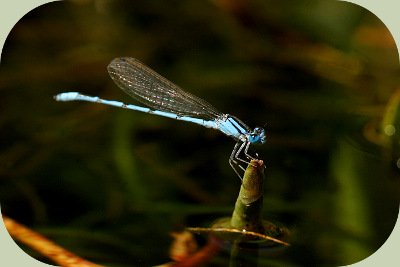
There are many benefits of small backyard ponds for both people and the environment. Freshwater habitats of all kinds are currently experiencing a great decline through direct destruction, pollution and alteration. From the stand point of conservation and permaculture, building a pond is immensely useful and beneficial.
Benefiting Wildlife
Small ponds are incredibly useful to a wide variety of wildlife, including insects, spiders, crustaceans, amphibians, reptiles, fish, birds and mammals. Even very small ponds, such as those no more than a meter squared can still provide considerable value to many small animals. Many amphibian species have shown dramatic declines around the world in the past several decades. Providing your local pond dwelling species of amphibians with a pond full of clean water for breeding sites and as a home, is one way to truly help make a difference for local wildlife.
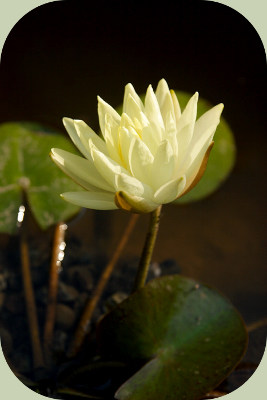
Small backyard ponds that benefit wildlife often include some of the following components:
- A shallow portion for bathing/wading birds and migrating amphibians.
- A complex pond edge that includes plants growing along the edge, partially submerged and if possible, some plants that are completely submerged. These provide shade, food and cover for a wide diversity of pond life.
- Large rocks, pieces of bark, branches of wood along and near the pond's edge for cover for small animals.
- Include some plants that are native to your area, in and around your pond, as these often provide the best sources of food and cover for native wildlife.
Be More Prepared For Your Next Outdoor Adventure!
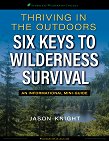
Don't leave without knowing these six essential survival skills. Our free survival mini guide reveals the strategies of:
- Shelter & fire to prevent the number one cause of death
- Obtaining clean water to avoid life-threatening dehydration
- Common wild survival foods and other critical skills!

Permaculture Potential: Food
Ponds are an excellent asset to those who wish to practice permaculture, even on a tiny scale. Even a small pond can help create a more ideal microclimate for growing many plants as they help to moderate the temperatures and add moisture. Also, many edible plants can be grown in small backyard ponds. Just a few of the edible species are:
- Wapato – food for people and livestock, beneficial insect attractor
- Wild Rice – food for people and livestock
- Cattail – food, materials for crafts, water filtration, cover for small/young fish
- Lotus- food for people, cover for fish, beneficial insect attractor
- Pond Lily – food for people and livestock, cover for fish, beneficial insect attractor
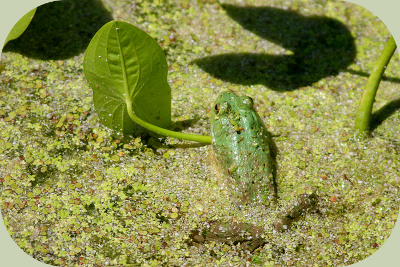
Permaculture Potential: Water Storage
Among the many utilitarian uses, a small backyard pond can provide water storage. Having clean freshwater available in case of emergency can help bring peace of mind. If done thoughtfully, the construction of a small pond can be a way of dealing with soggy spots or rain runoff in a backyard. The presence of the water can help create a microclimate in your garden that can be beneficial to plants growing nearby and can help keep your yard more moderate during those hot summer days. A small pond can also be a source of water for small scale urban permaculture practices and can be used to water plants in your yard, whether they are decorative roses or vegetables.
Educational Value and Enjoyment of Small Backyard Ponds
Small ponds can be things of great beauty and wonder. A pond can really add to the appeal and look of a backyard. It can also provide a great opportunity for interaction with and education about the natural world, both for children and adults alike. Even a very small pond is a rich habitat for a wide assortment of life forms. Such a micro-habitat can act as an outdoor classroom for those interested in learning more about the natural world and relationships with it. Life and death, reproduction and birth, daily dramas of predation and evasion can be observed in even bucket-sized backyard ponds. The magic of watching dragonfly nymphs and amphibians tadpoles grow and transform can positively impact children for a lifetime and even inspire a new generation of naturalists.
By the way, a big part of why we love homesteading & permaculture skills so much is because they are a natural extension of learning about wilderness survival (both fields are all about self-sufficiency and working with nature to satisfy needs). An understanding of survival not only helps you become a better permaculturist, it empowers you with life-saving outdoor skills to keep you safe when out in nature. Right now you can get a free copy of our mini survival guide here, where you'll discover six key strategies for outdoor emergencies, plus often-overlooked survival tips.
Further Resources:
Here's another article about creating small backyard ponds: The Small Pond Hubpage.
To learn more about permaculture, a design system for sustainable living, check out our Permaculture Courses.
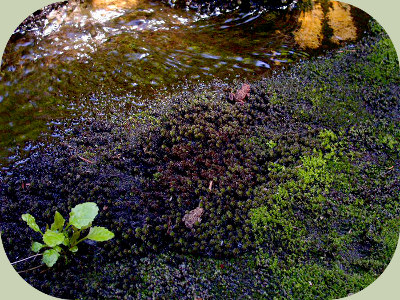

About the Author: Filip Tkaczyk is a periodic guest teacher at Alderleaf. He also wrote the field guide Tracks & Sign of Reptiles & Amphibians. Learn more about Filip Tkaczyk.
Return from Small Backyard Ponds back to Wilderness Articles
Is The Essential Wilderness Survival Skills Course Right for You? Take the "Online Survival Training Readiness" Quiz
See for yourself if this eye-opening course is a good fit for you. It takes just a few minutes! Get your Survival Training Readiness Score Now!

Grow Your Outdoor Skills! Get monthly updates on new wilderness skills, upcoming courses, and special opportunities. Join the free Alderleaf eNews and as a welcome gift you'll get a copy of our Mini Survival Guide.

 The Six Keys to Survival: Get a free copy of our survival mini-guide and monthly tips!
The Six Keys to Survival: Get a free copy of our survival mini-guide and monthly tips!
Learn more